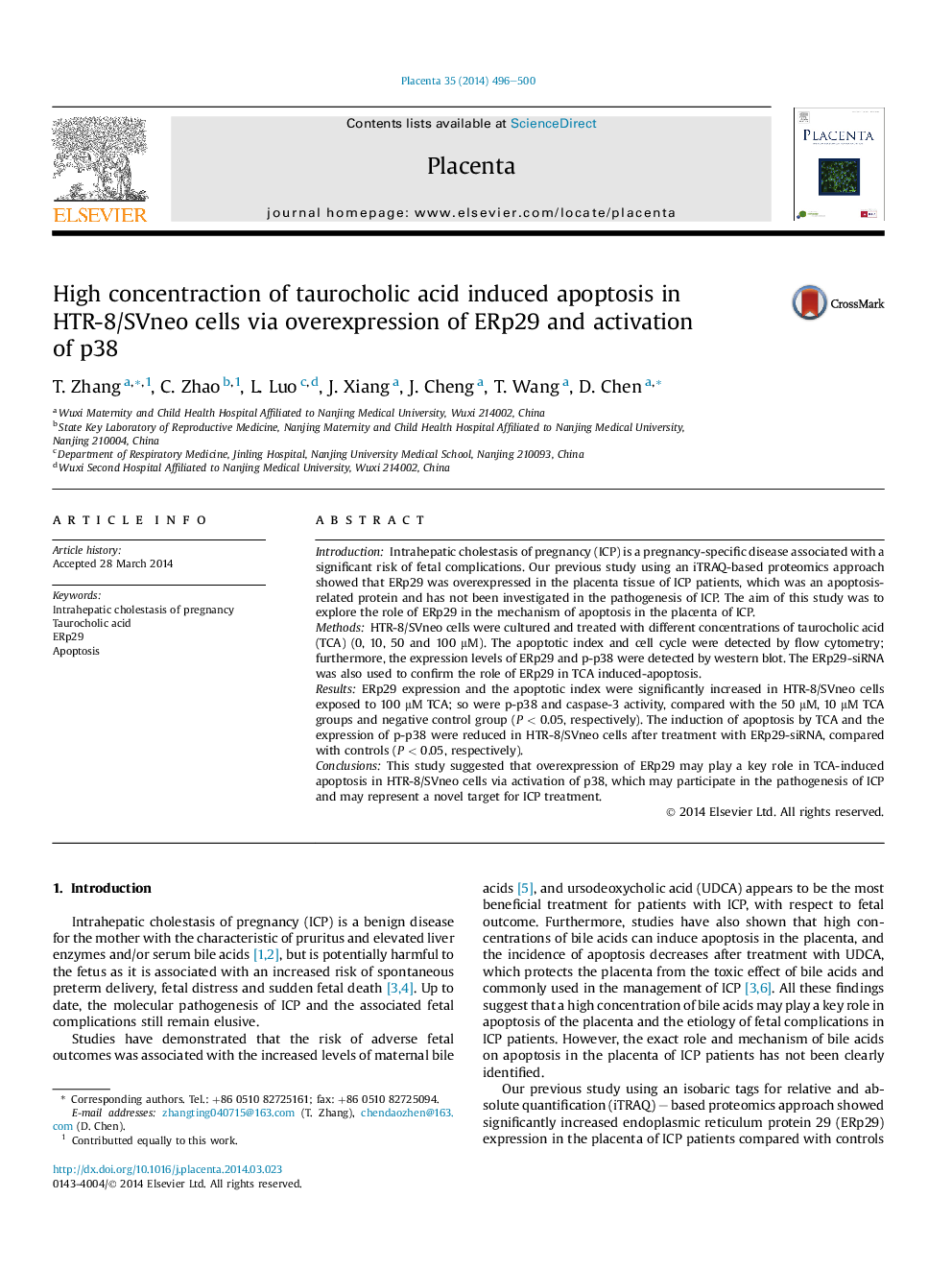| Article ID | Journal | Published Year | Pages | File Type |
|---|---|---|---|---|
| 2789046 | Placenta | 2014 | 5 Pages |
•ERp29 and apoptosis levels were increased in HTR-8/SVneo cells exposed to 100 μM TCA.•Increased ERp29 and apoptosis were induced via activation of p38 and caspase-3.•TCA treated cells transfected by ERp29-siRNA showed decreased ERp29 expression.•ERp29-siRNA induced decreased p-p38 expression and apoptosis in TCA treated cells.
IntroductionIntrahepatic cholestasis of pregnancy (ICP) is a pregnancy-specific disease associated with a significant risk of fetal complications. Our previous study using an iTRAQ-based proteomics approach showed that ERp29 was overexpressed in the placenta tissue of ICP patients, which was an apoptosis-related protein and has not been investigated in the pathogenesis of ICP. The aim of this study was to explore the role of ERp29 in the mechanism of apoptosis in the placenta of ICP.MethodsHTR-8/SVneo cells were cultured and treated with different concentrations of taurocholic acid (TCA) (0, 10, 50 and 100 μM). The apoptotic index and cell cycle were detected by flow cytometry; furthermore, the expression levels of ERp29 and p-p38 were detected by western blot. The ERp29-siRNA was also used to confirm the role of ERp29 in TCA induced-apoptosis.ResultsERp29 expression and the apoptotic index were significantly increased in HTR-8/SVneo cells exposed to 100 μM TCA; so were p-p38 and caspase-3 activity, compared with the 50 μM, 10 μM TCA groups and negative control group (P < 0.05, respectively). The induction of apoptosis by TCA and the expression of p-p38 were reduced in HTR-8/SVneo cells after treatment with ERp29-siRNA, compared with controls (P < 0.05, respectively).ConclusionsThis study suggested that overexpression of ERp29 may play a key role in TCA-induced apoptosis in HTR-8/SVneo cells via activation of p38, which may participate in the pathogenesis of ICP and may represent a novel target for ICP treatment.
